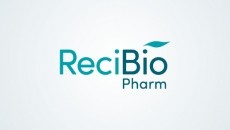Tackling side effects with drug delivery
pharmaceuticals that promises to overcome a major healthcare
problem - deaths and illness caused by aspirin and other
non-steroidal anti-inflammatory drugs (NSAIDs).
BioDelivery Sciences International has already conducted animal studies with aspirin encapsulated using its technology, and found that the tendency of the drug to cause gastrointestinal side effects is greatly reduced, while its efficacy is unaffected and may even be enhanced.
NSAIDs are among the most commonly used medications, taken by 14 million people in the US on a daily basis. All drugs in this class cause inflammation and ulcers in the GI tract, to a greater or lesser extent, and this massive exposure takes its toll. Each year, around 100,000 people are hospitalised and 10,000-20,000 die each year from NSAID-related complications.
BDSI aims to get around this problem by incorporating the NSAID molecules in a matrix comprised of cochleates, a naturally occurring material based on calcium-phospholipid structures. Last year, the company presented preliminary data suggesting that aspirin delivered in this matrix did not cause GI inflammation in animals, and seemed to improve the delivery of the drug to target cells.
Another benefit of the so-called Bioral technology is that it is compatible with a broad range of drug compounds and does not require any chemical bonding to the active molecule, according to the company.
This could have the added advantage of a rapid regulatory route to approval for drugs based on the technology, as well as additional patent protection that could potentially increase the lifespan of a drug franchise. The company hopes to start its first clinical trials of the technology before the end of the year.
BDSI also believes that its technology could answer a need to develop oral formulations of lysosomal storage enzymes in order to combat Gaucher disease, an inherited enzyme deficiency that causes anaemia, fatigue, bleeding, and bone fractures. The disease is rare, affecting just one out of 100,000 people, but is particularly common in certain ethnic groups (notably Ashkenazi Jews) and already generates over $600 million (€476m) in global enzyme replacement sales.
The company is planning to launch a subsidiary in Israel called Biorazyme to focus on this project. It also has a subsidiary called Bioral Nutrient Delivery focusing on applications of the technology in the nutraceuticals arena.











